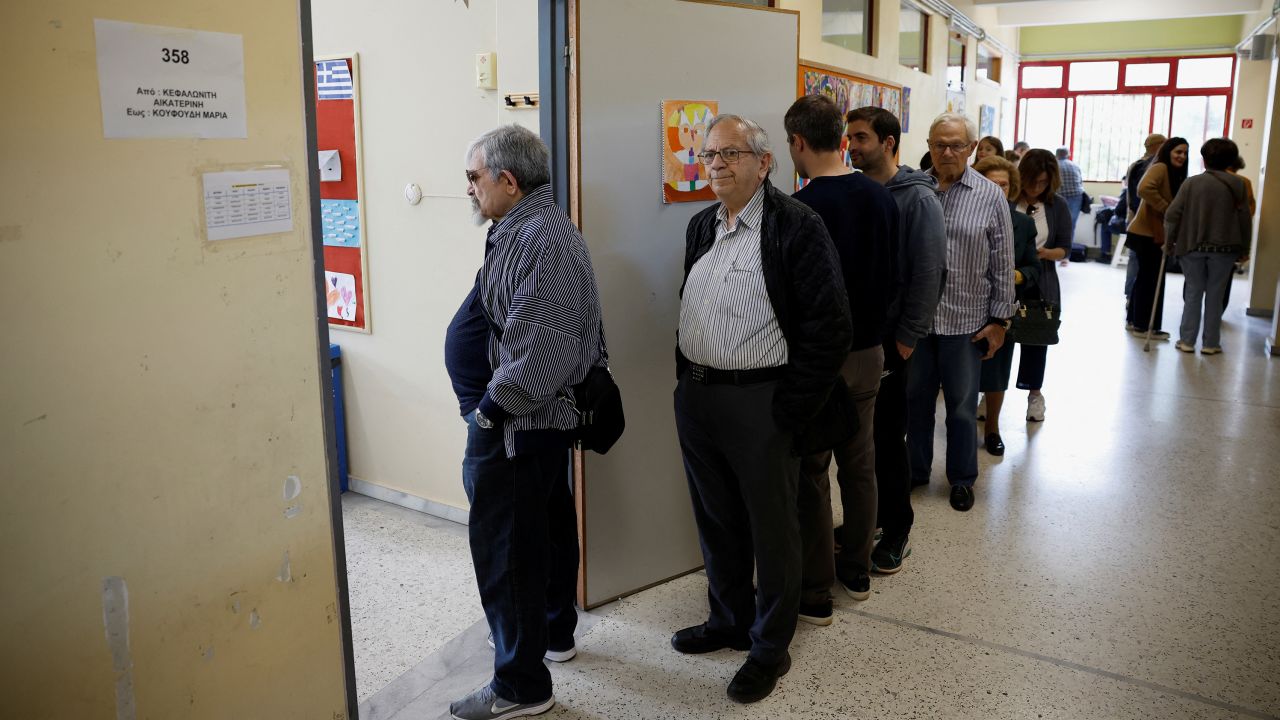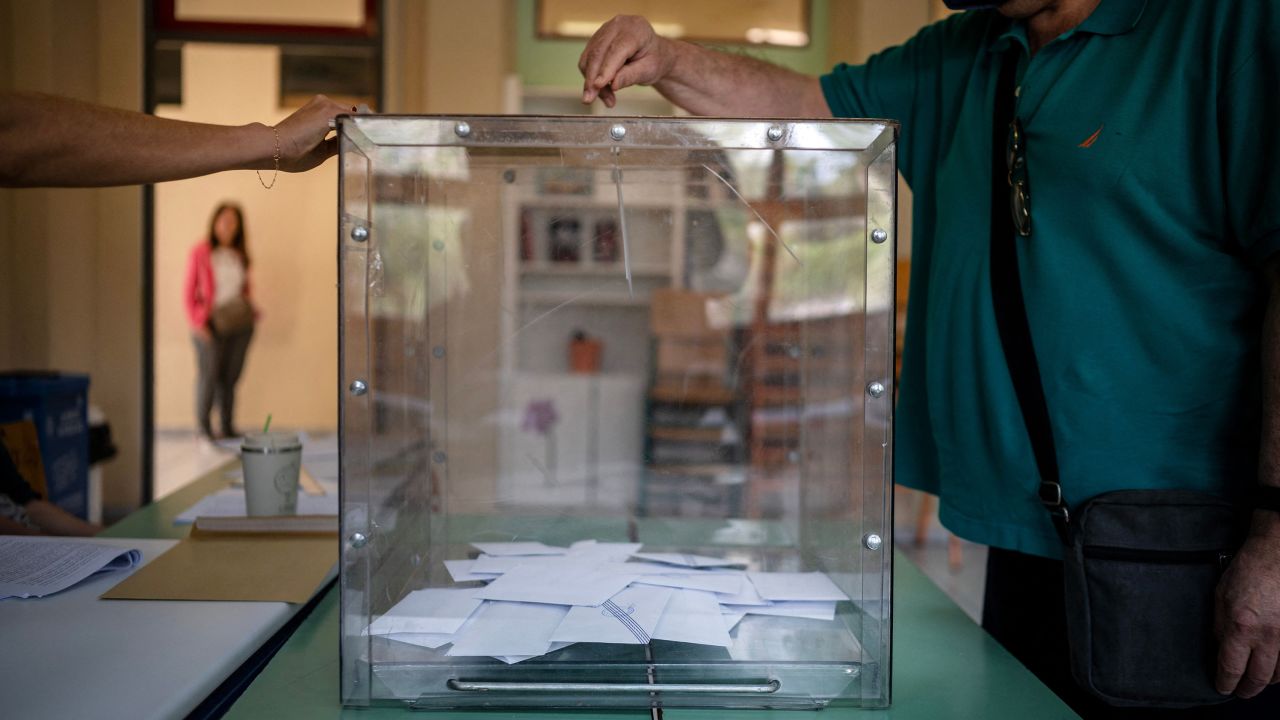Athens
CNN
—
Greece’s ruling New Democracy party scored a crushing victory in parliamentary elections Sunday but fell short of winning an outright majority in a vote dominated by the cost-of-living crisis, a wiretapping scandal and anger over the country’s deadliest-ever train crash.
With more than 99% of votes counted, ruling center-right party of Prime Minister Kyriakos Mitsotakis, surpassed all expectations garnering more than 40% of the vote in a result he described as a “political earthquake.”
His main opposition, Alexis Tsipras’s centre-left Syriza party, suffered major losses, coming in second with just over 20% of the vote.
However, Mitsotakis did not win enough votes to secure a single-party government. The vote was held under a new proportional representation system that requires a threshold of around 45%.
Greek President Katerina Sakellaropoulou will now give the top three parties up to three days to form a coalition, though Mitsotakis has already indicated he’s not interested in sharing power.
“Without a doubt, the political earthquake that occurred today calls on us all to speed up the process for a definitive government solution so our country can have an experienced hand at its helm as soon as possible,” Mitsotakis told jubilant New Democracy supporters massed outside party headquarters in Athens.
If he fails to form a coalition, a caretaker government will be sworn in and a second vote will take place in late June or early July. That round will be held under different rules requiring the winning party to achieve just 37% of the votes.
Greeks headed to the polls with the future of the economy and their strained personal finances topping their priorities.
New Democracy’s bid for a second term focused on the country’s successful economic recovery since coming to power in 2019 with Mitsotakis portraying himself as a safe pair of hands to further boost growth.
“The numbers speak for themselves,” Mitsotakis told CNN while on the campaign trail. “We were laggards when it came to growth back in 2019 and now we are one of the best-performing economies in the eurozone.”
The country’s economy has staged a stunning turnaround in the last decade, and is now on the brink of returning to investment grade on the global market for the first time since it lost market access in 2010.

Significantly for the elections though, the country’s financial gains have not yet been felt by many Greeks struggling with high inflation and living costs.
A belt-tightening financial crisis throughout the 2010s saw the country’s GDP slashed by a quarter and people’s salaries and pensions severely cut leading thousands to the breadline.
Asking for a second chance is main opposition leader Alexis Tsipras, who came to power in 2015 promising radical change that saw bank runs and capital controls fall short of convincing voters.

“Greeks did not vote feeling optimistic,” says political analyst Petros Ioannides, managing partner of aboutpeople pollsters. “Neither of the two main parties are new to the scene. They have both been in government during the last 10 years,” he said.
“In 2015 people voted for change, and a newcomer prime minister, Alexis Tsipras, and there was hope in that. In 2019 there was a different kind of hope, a yearning for a return to stability, again with a first-time prime minister, Kyriakos Mitsotakis.
“In these elections, the parties and leaders are known and so are their perceived shortcomings.”
The elections also took place in the shadow of a wiretapping scandal in which the government was accused of spying on opposition politicians and journalists, raising overall concerns over the rule of law.
The turmoil, which one political party referred to as “Greek Watergate,” forced a number of high-profile departures.
But potentially, the most severe blow for the government came in the form of a head-on train collision that killed 57 people in February, many of them university students.
The country’s deadliest railway disaster saw tens of thousands of people take to the streets across Greece, venting their anger against corruption and chronic lack of infrastructure. It also pushed some voters away from established parties.
Young protesters were seen on national television crying, saying they felt betrayed by their politicians. Out of a total of 9.8 million registered voters, there were around 440,000 first-time voters in this election, and many may have been influenced by the rail disaster.

Despite not gaining enough votes in the first round, New Democracy has indicated that it does not want to enter a coalition government.
The most likely scenario is that a caretaker government will be sworn in and a second vote will take place, most likely, in early July.
This vote will take place under a bonus system that benefits the winning party by giving it a bonus of up to 50 seats in parliament calculated on a sliding scale depending on the percentage of votes won.
Wolfgango Piccoli, co-president at financial advisory firm Teneo, said markets and investors are looking for strong leadership and political stability, and would prefer a single-party government.
“A coalition government would raise concern about political stability. That would certainly increase the risk from a market perspective that there will be bickering and not much will get done,” he added.
With many Greeks having already factored in a second ballot, analysts say some of Sunday’s voters chose to vote for smaller parties, to show their discontent with the political establishment.
They are expected to rally behind the main parties in a second election where they will want to see a strong government emerge.

